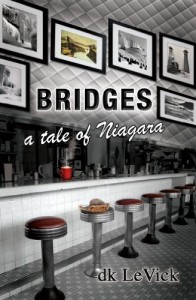 Let’s Start With Your Name?
Let’s Start With Your Name?
I write under the pen name of Allan Douglas. I make no secret of the fact that I use a pen name, and I do so for the same reason that Archibald Leach chose to be known to his fans as Cary Grant. It’s easier to remember and sounds more artistic. In my case I use my first and middle names reversed, so those who know me personally, and like me anyway, call me Doug.
http://allandouglas.com/blog/
Name of book:
Writing for Profit or Pleasure: Where to Publish Your Work. That’s quite a mouth-full isn’t it?
Book genre:
It’s non-fiction and would be filed under writing/reference/guides, etc.
Date Published:
This book hit the shelves at Amazon April 24th, 2011 and should be live on Barnes & Noble April 29th. Hopefully a paperback version will be available a week or two after that.
Publisher:
My wife and I run a micro-publishing house called Smoky Mountain Word Works. We list that as my publisher.
What is your day job?
Day job? (grins) Well, when I’m not writing I’m gardening or tending to our acreage. I sometimes do some woodworking – I used to build high end custom furniture, but I’m retired from that now. Most days you will find me getting cozy with a keyboard.
What is your book about (in a few sentences)?
It’s a guide to help new authors and writers find ways to get their writings published and to help experienced writers find new avenues of publication to explore. I’ve got chapters on blogging and on-line content, three chapters on creating eBooks, one on POD books and vanity presses, but I also go into writing for magazines and newspapers, among other things.
Most challenging part of the writing process:
That would be proofreading and editing. I’ll P&E my own articles, but not my books. I do go through a manuscript at least twice after it is written and before turning it over to an editor, but there are always some little things that could be phrased better or tightened up. Editors have a tough job telling writers that their pride and joy is not quite good enough, without insulting them. Writer’s need to open to *constructive* criticism from people they respect. A good editor is just trying to help… we have to remember that. And I include myself in that; I can get a bit touchy when a favorite piece of text gets axed.
What motivates you to write?
If I didn’t write my brain would explode. No, really! I get bits of stories or conversations between people I don’t know running through my head and the only way to shut them down is to write them out. Sometimes I scrawl them out on a notepad in the middle of the night, other times I get up at 4:30 or 5:00 in the morning, hang my fingers over the keyboard and let the words flow into the computer. If I didn’t let them out, my head would bust.
Did you experience writer’s block? If so, how did you overcome it?
No, I rarely experience writer’s block with my non-fiction. The problem I have there is in getting things organized and deciding how much is enough. I like to keep instructive writing tight. I don’t ramble or wander off on tangents, but I want the reader to come out of a chapter or article clearly understanding a process or concept.
Fiction is another matter entirely. I have two pieces of fiction going right now; one is a long story for an anthology coming out in August. Being an anthology there are certain conditions and situations that all stories will share, and I’m having trouble meeting those conditions while resolving a particular situation the way I want to.
When I get stuck like this, or if I’m working on a story I did not outline first and have no idea where to go with it next, I like to take my “writing time” to do creativity exercises. One of my favorites is to pick a topic, any topic, sometimes a headline out of the paper or an ad in a magazine, or some quote on Twitter, set up two or more people to be discussing that topic, and I write dialogue. I’ll fill in setting and such if it becomes necessary. I’ll let them talk as long as they continue to speak to me. Then I’ll give it a name and file it away. I keep those as seed stock. Sometimes when I go back and read through them, one of these seeds will sprout into a story idea, occasionally they bloom into a full blown story, maybe even a book.
Sometimes the answer to my problem comes up in the discussion, but generally not. However, distracting myself from the problem for a while often allows a solution to present itself by sneaking in the side door while I’m focused on what’s happening outside the front window.
How long did it take you to write this book?
Oh, golly, let’s see… I built the framework in mid December last year, it went live mid-April (counts on fingers) that’s about four months all total.
Why did you decide to self-publish this book?
Partly because I needed to experience the process – although I actually did that earlier; I published one chapter of this book as a stand-lone book (more like a booklet) to gain first hand knowledge of and experience in the process of publishing eBooks through each vendor. But mostly because the traditional publishing houses seem to have become dinosaurs flailing in the tar pits. And in their death throws they have become just that much less receptive to publishing non-fiction books unless you have name recognition. The publishing house I used to deal with has gone out of business; the rest won’t know me from Adam. The thought of spending the next year or two querying agents, hoping to get into a mainstream trade book publisher did little to excite me! Indie presses and self publishing appear to be the future of publishing. I might as well buy a ticket to board that train now.
What is the biggest misconception about writing a book?
That it’s easy.
Especially now that the New York publishing houses are not in control of what gets published, there is a growing concept that anyone who can type can be a successful author. Self-publishing encourages this thought because anyone can shoot a manuscript file into KDP or PubIt! and claim the title of “author”. But to be successful means that people will have to actually like what you wrote enough to recommend you. Now the book buying public is in control of who is accepted and who is rejected as an author. Creating a book that is well written and a story that is well told still takes some skill. Not everyone with a keyboard has that skill.
What was your favorite aspect of the writing process for this book?
I love the creative process. It’s much the same as when I was working wood. Taking a pile of raw, rough-sawn lumber and converting it into a beautiful, well made piece of furniture is the next best thing to giving birth. Or so I assume – as I’ve never given birth. Writing a book is much the same; instead of lumber we start with some raw ideas. We shape them, shave them, mold them, until they take on the desired shape and fit together perfectly. Then we smooth off the rough spots, finish it out and polish it up to produce something that is sturdy, comfortable and a wonder to behold.
Then we send it away and start on another.
What tools/methods have you employed to promote your book?
I have a Facebook author’s page, I use Twitter, I have a web site, I have a couple of blogs, I’ve joined GoodReads.com. I also have a YouTube account and a LinkedIn account but I haven’t seen much value in either of those, not for what I do, not for promotions. I also maintain a personal e-mail list of friends and family to whom I send occasional announcements of things like my book being published. For the most part this results only in a barrage of congratulatory e-mails, but occasionally it can bear fruit.
Just last night my wife and I were in a restaurant celebrating out 156th wedding anniversary and a fellow I haven’t seen in a couple of years – but is on my mailing list – spotted me and came over to our table. He said, “I got your e-mail about the book you published, and was very interested in that. I just wrote a book and I want to get it published. I have a lot of questions, can we talk some time?” Potential fruit – um, I mean the opportunity, not Carl.
What advice would you give to writers regarding promotion?
(laughs) I think the best advice I can give others is, “Don’t follow me; I’m lost too!”.
In the past, the publisher did all the marketing. Self-pubing is a whole new ballgame. Unless we are in a position to hire a publicist, we have to be the batter, the pitcher, the catcher and the umpire all at the same time.
If I manage to make any decent sales on this book, I’ll let you know what I did.
For right now what I’m focusing on is getting word out that the book is available; without being spammy about it, trying to get some reviews; even if I have to buy them, and of course hoping that the book is actually as informative, entertaining and valuable as I think it is. My editor and beta readers think so, but in reality, the jury is still out on that one.
Here’s a quote: “I’m a writer – if I stop writing, I am nothing.” -Wilbur Smith Is this true?
No. If it were true, I’d be a hollow shell with nothing inside. As human beings, we can not be so one-dimensional; if we wrote our characters to be so flat our books would surely fail. We ourselves must therefore be at least as three-dimensional and vibrant as the people we create.
Here’s another one: “Inspiration is the act of drawing up a chair to the writing desk.” Anon How do you feel about this statement?
Hmmm… “Inspiration is the act of drawing up a chair to the writing desk.’ That’s much deeper than it sounds at first. To me it says that inspiration requires one to take action; to put pen to paper, to capture the thought and shape it into something or it is just a flitting fancy, of no use to anyone. It also echoes the old adage of “writer’s write – always”. To me this means that if you are not feeling particularly “inspired” today, sitting down at your desk and confronting the task will bring inspiration to you, where giving in to procrastination simply allows the muse to lounge around somewhere else. Pursue inspiration and it will serve you.
